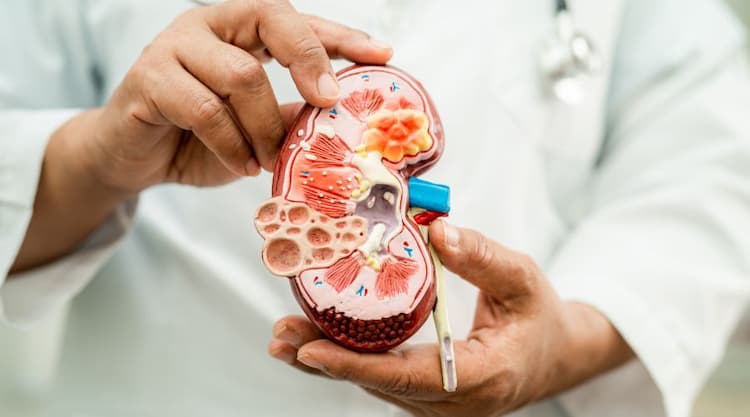7 Signs of an unhealthy gut and what you can do to fix it

Medically Reviewed By
Dr Divya Rohra
Written By Prekshi Garg
on Jul 19, 2022
Last Edit Made By Prekshi Garg
on Mar 15, 2024

Our gut is populated with both good and bad bacteria. But, did you know that excess and unhealthy food cravings could be a sign of increased bad bacteria in your gut? The complexity surrounding gut physiology is one of the burning topics of discussion in the medical community.
Our gut health is like a mirror to the rest of our physical well-being. If your gut isn’t in its best state, chances are that the same is reflected in the other aspects of your physical health. Poor gut health also impacts a variety of vital organs, including the heart, brain, immune system, and even one’s skin and hormonal balance.
But, how do you pinpoint if you have an unhealthy gut? Well, we will discuss the common signs of an unhealthy gut and what you can do to fix the issues.
Top Signs of an Unhealthy Gut
An unhealthy gut presents itself in multiple ways. Remember how we said that persistent cravings are a sign of an unhealthy gut? Listed below are the 7 most common and persistent signs that are a red flag for an unhealthy gut.
1. Experiencing Upset Stomach Frequently
When we talk about an upset stomach, it includes every last symptom that you can think of. From symptoms like constant bloating you may experience after a big meal to frequent cramps from consumption of some food items. It also manifests as constipation that restricts your standard bowel movement.
Even diarrhea and heartburn are alarming signs of an upset stomach. Do you sit and wonder why that’s the case? Is it just because of the constant fast food you have been eating?
Sometimes, the main reason behind an upset stomach is due to an unhealthy gut, which happens when the levels of bad bacteria in the gut outweigh the good bacteria. This hampers the digestion and processing of the food and causes problems in eliminating the waste from the body.
In turn, you experience the symptoms of an upset stomach, which often starts with discomfort and pain in the abdominal region.
2. Unexplained Changes to the Weight
Not just weight gain, but even sudden weight loss without any proper diet restrictions or exercise is a sign of poor gut health.
Often, weight loss is a more common sign that your gut health is in bad shape. When your gut isn’t functioning optimally, chances are that it impairs the small intestine’s ability to absorb the necessary nutrients out of the food that you just consumed. This also leads to another complication known as the small intestinal bacterial overgrowth (SIBO), which further causes substantial weight loss.
So, how does poor gut health contribute to weight gain? Many individuals with an unhealthy gut are at heightened risk of developing insulin resistance in the body, which can lead to risks of overeating, decreased nutrient absorption, and weight gain.
3. Increased Sugar Cravings
Don’t you often have an uncontrolled urge to eat nothing but added sugars, refined sugar, and processed foods? Well, eating an unhealthy diet also contributes to uncontrolled sugar cravings, which is a sign of poor gut health.
Sugar cravings are also associated with an increased rate of inflammation in the body, which is hands down the worst that you can do to your body.
Low-grade inflammation is a sign of poor gut health, chronic diseases, and even a sign of several types of cancer. Consumption of excess refined sugar is also associated with the sudden increase in the bad bacteria in the gut, which directly disbalances the microbiome.
4. Persistent Fatigue
A comprehensive study conducted in 2017 reported that patients diagnosed with chronic fatigue syndrome were found to have poor gut health, especially due to the imbalance of the different microorganisms in the gut microbiome.
There are also a few pieces of research that indicate a direct correlation between persistent signs of fatigue and irritable bowel syndrome.
Besides tiredness and lethargy, an unhealthy gut also triggers sleep disturbances, which can further lead to risks of chronic fatigue. This is primarily due to the reduced production of serotonin, which is heavily influenced by the gut.
5. Experiencing Skin Irritation
Do you experience common skin problems like acne, eczema, and psoriasis? Well, did you know that the same could be a sign of an unhealthy gut?
The imbalance in the levels of probiotics and prebiotics directly impacts the complex immune mechanisms in the body, which contributes to skin irritation and complications.
Another possible cause could be persistent food allergies or improper dietary habits. It often triggers the release of certain proteins in the body that leads to skin irritation, redness, and chronic swelling.
Common food allergies can also manifest as respiratory allergies, which can lead to shortness of breath or other complex symptoms.
6. Experiencing Food Intolerances
If you are experiencing food intolerances quite often, it could be a sign that your body isn’t digesting certain foods optimally.
Remember that food intolerance and food allergy are two different things. Food intolerance is a medical condition wherein your gut has a difficult time digesting certain foods.
Although it is a sign of an unhealthy gut, the same is primarily caused by an uneven level of bad and good bacteria in the gut. Food intolerances often lead to complications like bloating, diarrhea, abdominal pain, discomfort, nausea, etc.
7. Sudden Mood Changes
Don’t you feel extra irritable when you have an upset stomach or you feel bloated? All you want to do is relax and balance the symptoms and even the minute disturbance can set you off the edge.
Well, you aren’t the only person experiencing something similar. There are studies that showcase a well-established link between the gut and brain functions. Research suggests that an unhealthy gut and inflammation in the digestive system often contribute to irritability and frustration.
Some people with poor gut health have even reported feelings signs of anxiety and depression, which contributes to extreme mood swings as well.
Poor gut health also manifests as migraines and severe headaches in some cases, which can contribute to irritability as well. The link between migraines and poor gut health is still inconclusive, which suggests that more studies need to be conducted.
How can You Improve your Gut Health?
Now that you have an idea about the signs of an unhealthy gut, let us walk you through ways you can improve your gut health. Remember that these are assistive tips. If your symptoms don’t get better, consider consulting your doctor for further help.
Following are some of the best ways to augment and improve your gut health:
1. Work on Stress Management
Experiencing chronic stress has brutal impacts on your entire body, including the gut. It slows down the body’s metabolism, affecting the way your food is processed and digested in the gut.
So, ideally, your first step to good gut health is to work on lowering your stress levels. You don’t have to do anything earth-shattering. Start with a simple walk, meditation, or even get a massage at your local spa.
Prioritize self-care for yourself because that is one of the best ways to manage your stress levels and prevent them from getting worse.
2. Focus on your Hydration
Water is your gut’s best friend. Drinking enough water throughout the day ensures that the mucosal lining of your intestine stays hydrated and in the best health.
Optimal hydration also maintains the levels of good bacteria in the gut, which is crucial for a healthy gut down the line.
3. Eat Gut-healthy Food
A gut-healthy diet is crucial if you are experiencing the signs of an unhealthy gut. This includes eating foods that are rich in fibers and probiotics.
Also, if you are diagnosed with chronic complications like irritable bowel syndrome or food intolerances, you can include foods that can support your health.
Adding a prebiotic or probiotic supplement into the diet can support gut health as well. However, there are certain restrictions to the same as well. Discuss all your options with your doctor before switching up your diet drastically.
4. Monitor for Food Intolerance
We are often unaware of underlying food intolerances, which can eventually lead to poor gut health. Ideally, you need to look out for signs of cramping, pain, diarrhea, nausea, fatigue, or bloating. If you find that the symptoms are persistent and don’t get better, get tested for any undiagnosed food intolerance that you could have.
It is always better to have a complete and clear idea about possible food intolerances instead of being unaware of the same and doing worse to your body with time.
Frequently Asked Questions
-
How do I clean my gut?
The easiest and more effective way to clean up one’s diet is by changing the diet and reducing the consumption of highly processed and high-sugar foods.
-
How do I check my gut health?
If you are experiencing signs of an unhealthy gut, consider seeing a doctor to get your symptoms analyzed. Depending on the signs, your doctor will prescribe a series of visual, physical, and lab-based tests to confirm a diagnosis.
-
How long does it take to heal the gut?
The duration is subjective. Nobody can give an exact timeframe for healing the gut completely. The recovery starts with a gut-healthy diet and accessory supplements to support gut health. Typically, it should take a few months before you can start witnessing notable progress.

Conclusion
Gut health is imperative to our overall physiological, physical and mental functioning. If your gut microbiome isn’t balanced, it will affect other bodily functions quite drastically. Instead of taking the symptoms for granted, always seek medical help whenever needed. We hope that this article gives you a comprehensive look into the alarming signs and the easy ways to recover from the issues.



